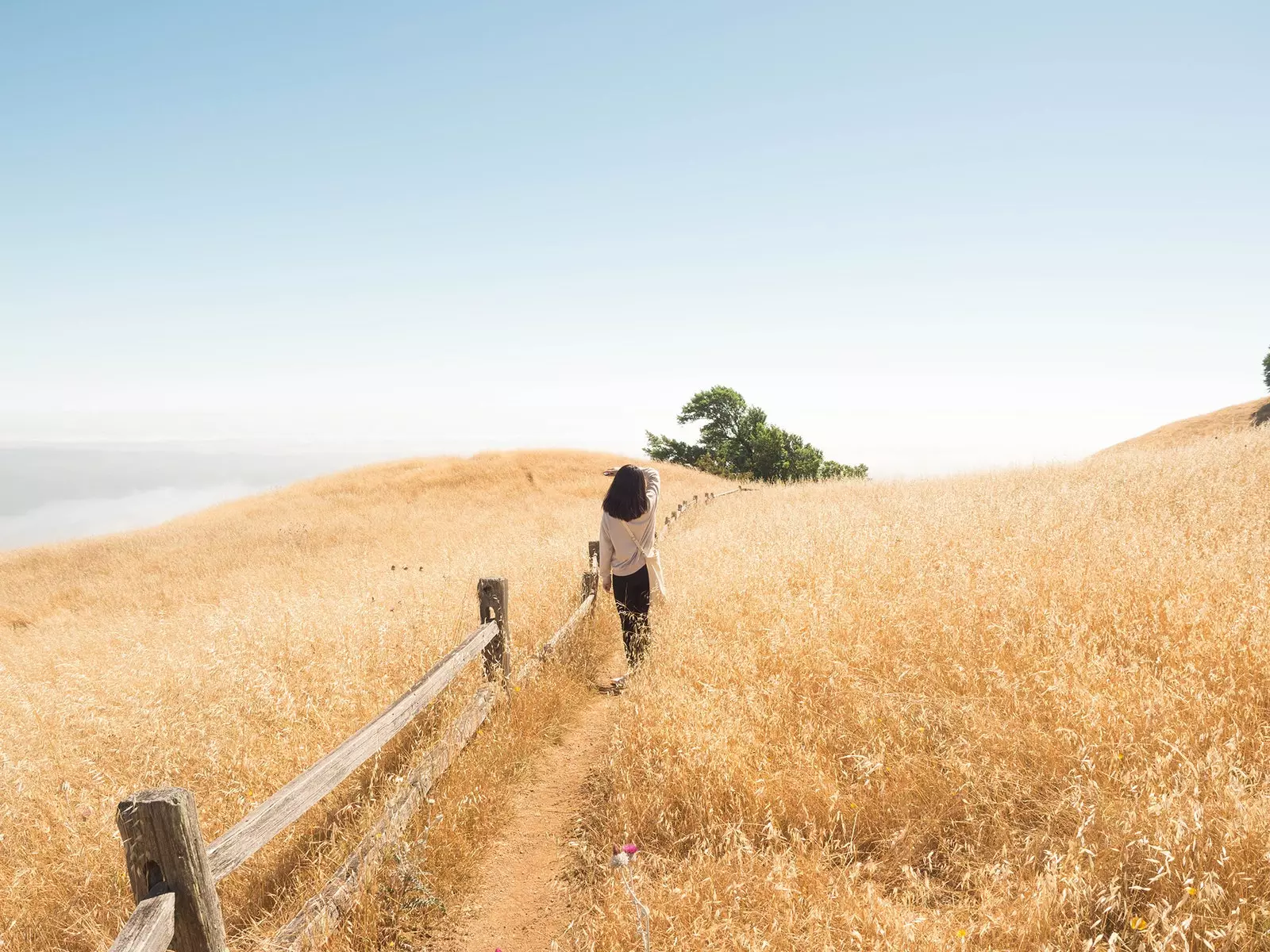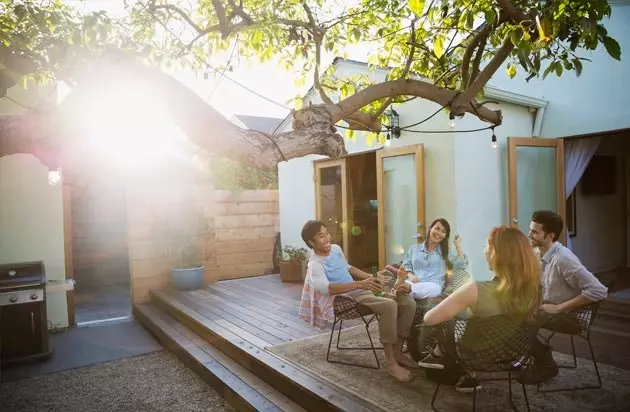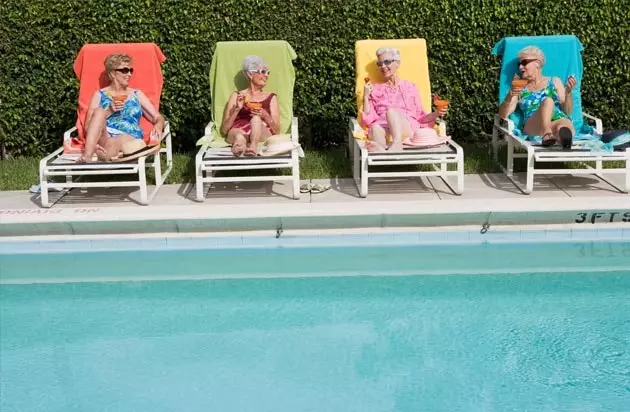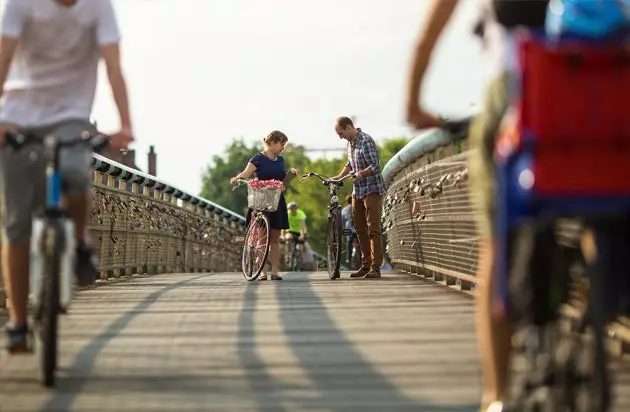
The return trip effect: yes, it has a name
GETTING EXCITED (OR NOT) HAS AN INFLUENCE
"The subjective perception of the human being depends on many factors, but, above all, there is a enormous influence of emotions . Somehow, time will pass faster or slower in our lives depending on the emotions we are experiencing at any given moment", explains **psychologist Jaime Burque**.
And he continues: "If we color our experiences with positive emotions, the sensation of the passing of time is faster. That's why when when we are having a great time and we feel happy and happy, it flies by. It also happens when we are doing something that we really like, we feel highly motivated , what we do is new or we live it to the fullest ".
Our question is answered there. Why do vacations always seem so short? Well, is there anything more motivating and innovative than being on a trip?
On the contrary, the time that does not make us happy it runs agonizingly slowly. Alberto de Cuenca already said it in Absence Mal: "Since you left, you don't know how slowly / time passes in Madrid. I've seen a movie / it's over barely a century ago. You do not know / how slow the world runs without you distant girlfriend.

The lightness of the one who is having a good time
"Time passes more slowly if we color it negative emotions" Burque confirms. "Everything takes longer for us when we are sad or we are having a bad time, when we wait impatiently for something , when we are in a hurry, if we are bored , when we are too obsessed with something, when our body aches or when we are tired or uncomfortable".
In fact, the worse we get , the more phlegmatic existence will seem to us. "Time seems eternal to us when we are experiencing a critical situation and, above all, when we are in danger (Who has not ever had an accident and has given him the feeling that everything was going to slow motion ) .
We also appreciate your course as slower when we get bored and especially when we lend excessive attention, that is, when we are too aware of him. So when we go on a trip, we also somehow embarked on a journey through time, since the emotions experienced throughout it (totally different from our day to day) will color our perception of time", details the expert.

Traveling is also taking a trip back in time.
ADVANTAGES OF THE HUMAN BRAIN
However, what do you remember? the sleepless nights on that Moroccan train where it was impossible to sleep, or that time you got sick and you had to spend the day in the hotel? Most likely hardly anything, thanks to a magical quality of your brain that Burque reveals to us , while you could specify every detail of the view you had when you opened the balcony of your AirBnb in Provence.
"To all this must be added a very healthy tendency of the human being : the capacity we have to remember much more the good and positive moments than the negative and bad ones. This will cause the trip flies by , but then we remember it all our lives with hairs and signs. And equally, of that terrible trip that seemed like an eternity to us, then we will remember almost nothing ".

I'm sure you'll never forget this view.
THE ETERNAL QUESTION: WHY DOES THE GOING TAKE US LONGER THAN THE RETURN?
The phenomenon even has a name: The return trip effect , and has been studied by several centers. Among them, the research of the University of Tilburg, in the Netherlands, stands out, which has confirmed through three different tests the existence of this perception.
On the one hand, the participants were made make round trips both on a bus and on a bicycle, and on the other, their reaction to the see a journey, also round trip, in a video . The most curious thing is that the phenomenon occurred even when the return took a different path, although equidistant, which showed that not familiarity with the route what causes the effect, but "a flight of expectations".
This is how the researchers explain it: "Participants they felt that the initial journey was longer than they expected. In response, they increased the time they assumed the return trip would take. Compared to this increased expectation, the return journey was experienced as shorter. In fact, the longer the initial ride felt, more increased the "return trip effect".

The "return trip effect", also by bike
However, the scientists also point out that in journeys that we make continuously, like the way to work and the way home, this effect disappears since, by doing it often, we are better able to accurately measure its duration.
But Why does the outward path seem longer to us from the outset? Burque clarifies it for us once again: " The anxiety to get to a place makes time go by much slower, or as Benjamin Franklin said, "An observed pot never breaks to a boil."
Therefore, it is very important to consider trips as a global where there is neither going nor coming back, with the philosophy that the journey is much more important than the destination . The more we see it like this, the more we will enjoy the passage of time, and even if it flies by, then we can savor it for the rest of our lives ", concludes the professional.

The important thing is the way
